In this article:
Refrigerators are one of the most useful inventions of our time. Almost every household has one and people cannot imagine living without it. As a result, people have created a culture of mindlessly shoving all their food – groceries, dairy, meats, leftovers, etc. – into it.
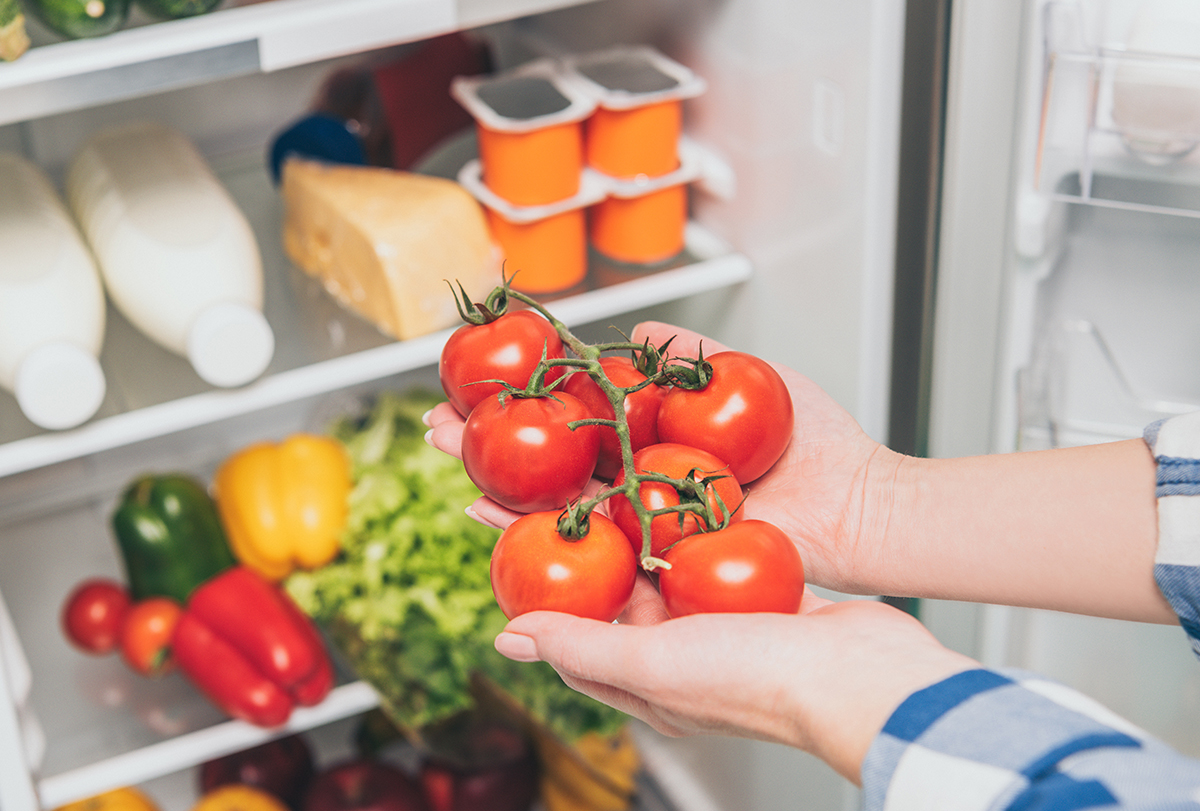
However, you may be surprised to learn that not all food needs to be refrigerated and some can even spoil faster inside the fridge.
This article will list common foods that should not be refrigerated: (1)
Foods That Shouldn’t Be in the Fridge
Here are some common foods that may fare better when stored outside the refrigerator than inside it.
1. Onions and garlic
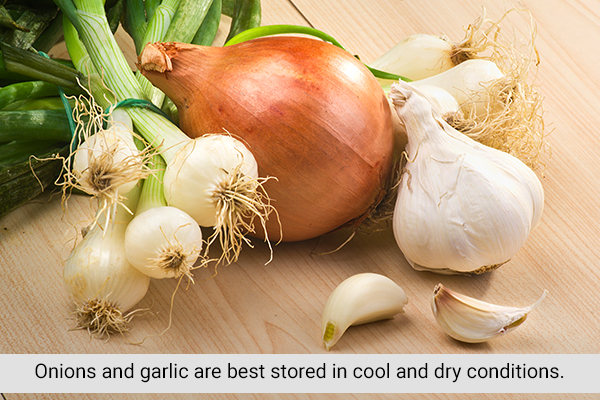
Onions and garlic are best stored in cool and dry conditions. Onions, in particular, require lots of ventilation to stay fresh. Refrigerators lack ventilation and can soil onions faster. (2)
Garlic also has a tendency to grow mold when not stored in a well-ventilated place. They should only be refrigerated after peeling. (3)
2. Watermelon
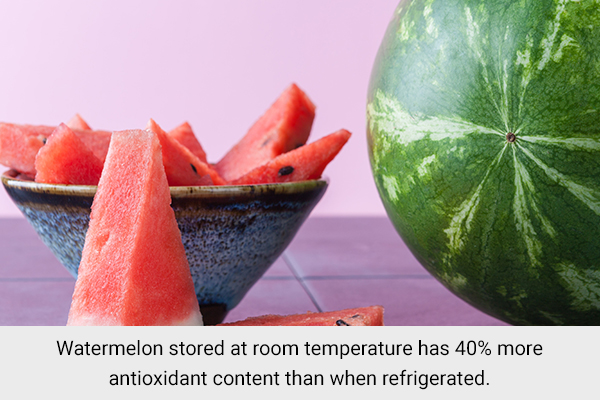
Watermelons contain 70% water and are loaded with antioxidants including vitamin C, beta carotene, and lycopene, which are best preserved at room temperature. Refrigerating them can decrease their effectiveness.
According to a recent study, watermelons stored at room temperature have 40% more antioxidant content than refrigerated ones. (4)
3. Honey
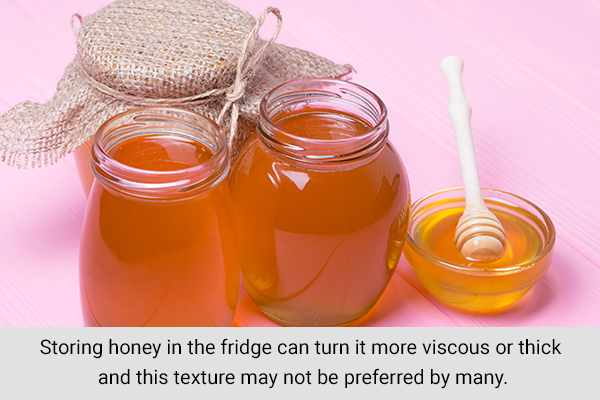
Honey is a superfood packed with nutrients and antioxidants. It is also the only food item that almost never spoils. When stored for longer periods, it may crystallize and turn harder.
Storing honey in the fridge can turn it more viscous or thick, and this texture may be unfavorable for many. Therefore, storing honey in an airtight sealed container in a cool place at room temperature is preferable. (5)
4. Potatoes (regular and sweet)
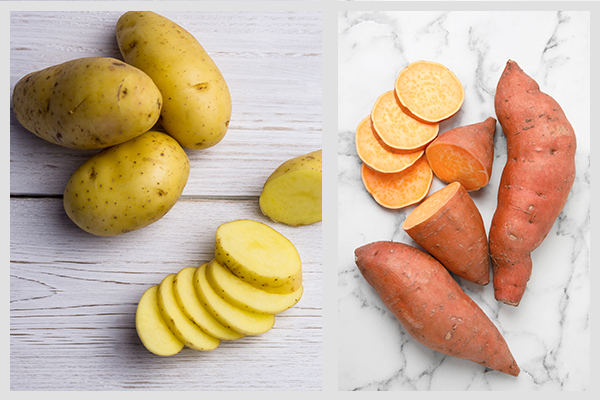
Both sweet potatoes and regular potatoes are best stored at room temperature. Refrigerating them will lead to an increase in their sugar content and will make them harder, discolored, and taste bad.
Remember to store your spuds in cool and dark places and consume them soon. (6) Storing them for long amounts of time (especially in warm places) can lead to a rise in glycoalkaloid levels.
Glycoalkaloids can alter the taste of your potatoes and may even be toxic in large amounts. (7)
5. Bread and baked goods
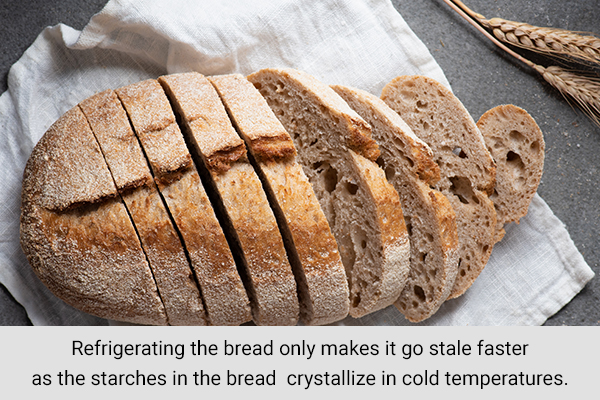
Bread and other baked products should not be stored longer than a week – even at room temperature. Refrigerating bread only makes it go stale faster as the starches in the bread crystallize in cold.
The best way to store it is in airtight bags or cling wraps.
6. Coffee
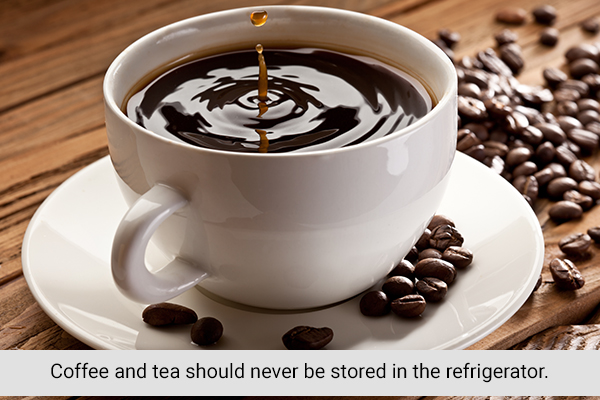
Coffee and tea should never be stored in the refrigerator. These caffeinated products tend to absorb the smells of other foods around them and lose their distinctive aroma.
Also, refrigerators can cause moisture to seep into the container, spoiling coffee. (8)
ALSO READ: 10 Reasons Coffee Is Good for You
7. Olive oil
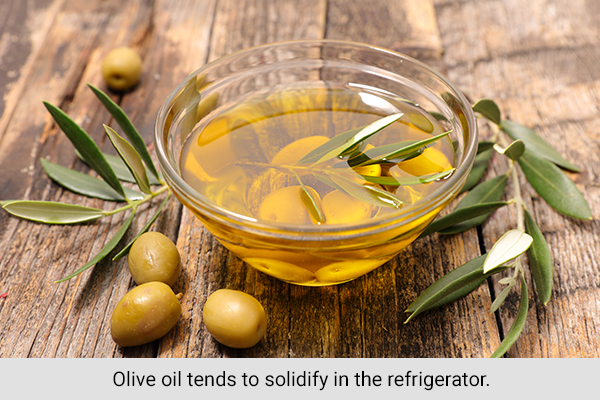
Olive oil (or any oil in general) tends to solidify in the refrigerator. Some varieties of virgin oil may also develop condensation and change their taste in the refrigerator.
Olive oil should be stored at room temperature in airtight containers or bottles. (9)
8. Tomatoes
Tomatoes become soft when stored in refrigerators. They also tend to remain unripe and lose their flavor profile. For best results, store tomatoes at room temperature away from sunlight, and consume them within a week. (10)(11)
9. Stone fruits
Stone fruits such as dates, mangoes, apricots, etc., should be stored on the counter for ripening. After ripening, consume the fruits immediately as they tend to spoil very soon.
You may store ripe fruits in the fridge for a very short while. (12)
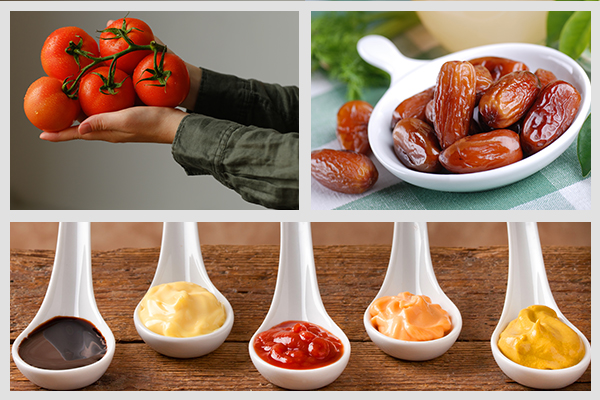
10. Condiments
Condiments such as mayonnaise, ketchup, and hot sauce should be stored at room temperature in dry places to preserve their flavor profile. They generally contain salt as a preservative and are unlikely to go bad. A shelf or cabinet is the best place to store these condiments. (13)
Do not store them longer than their expiration date. Always smell them before use; if they smell or taste rancid, chuck them away.
Most-Asked Questions
What temperature should the fridge be?
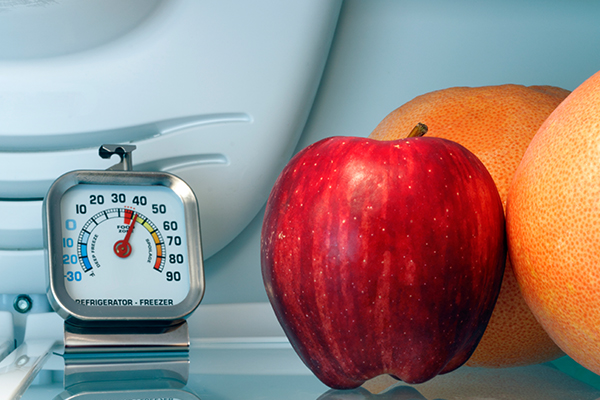
Always make sure the temperature of your refrigerator is less than 40°F and the freezer less than 0°F.
How should I store food in the fridge?
To store food safely in the refrigerator:
- Keep all jars tightly sealed.
- Make sure the temperature is below 40°F.
- Clean your refrigerator regularly. (14)
Final Word
Refrigerators are a very helpful appliance in today’s world and have helped decrease food wastage by a large amount. However, not all food is safe to store in refrigerators, and it is important to know what can and can’t be refrigerated.
- Was this article helpful?
- YES, THANKS!NOT REALLY


